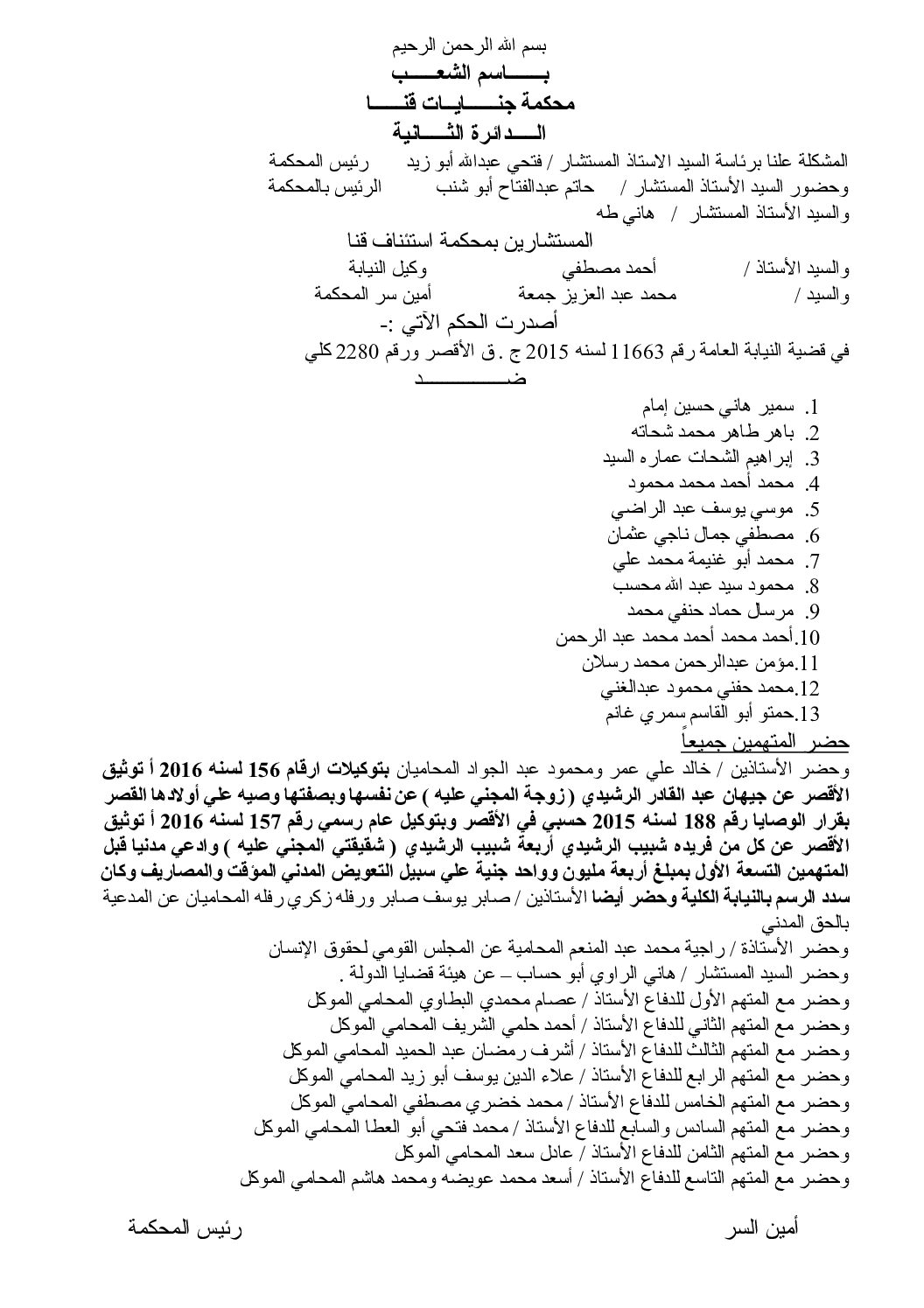2012 Social Protests: Cry Of The People
The year 2012 have seen many major political changes .. Egypt have witnessed the first post-revolution elected parliament which was later dissolved on court order, election of the first post-revolution Shura Council ( Consultative Council) which was also suspended then convened lately, the year also witnessed transfer of power from the ” Supreme Council of the Armed Forces (SCAF)” to the first elected civilian president, the Egyptian people saw 2 governments, 4 legislative entities ( SCAF , Parliament (before dissolution), SCAF ( once again), the President (Morsi) and lastly the Shura Council ), 4 Constitutional Declarations (1 by SCAF & 3 by the President ) and recently the passing of the new constitution.
With these radical changes in power, the political and legislative climate in Egypt, the Egyptian people continued to unite on a single act: to protest the economical and social policies of the Egyptian state, the same time when the government and and the country’s political and legislative elites continued on adopting economical policies that increased the marginalization and impoverishment of the poor, which resulted in an unprecedented rise of the demonstrating levels and number to reach over 3817 protesting acts combining all shades of the Egyptian people.
Spectrum
The protesting wave included many of the Egyptian society classes, including :
Media personals, journalists, entrepreneurs, doctors, nurses, health professionals, archaeologists, under-privileged areas’ residents, imams of mosques, street vendors,small merchants, butchers, guards, pharmacists, fishermen, university & schools students and graduates, pilots, Factories’ workers, unions’ workers, companies’ employees, governmental bodies’ employees, farmers, citizens on pension, lawyers, tourism guides, aerial hosts, people with disabilities, engineers, police staff officers, ships’ owners, luggage carriers, drivers, minibuses’ owners, airport workers, irrigation workers, workers of privatized companies, quarry workers, bakery workers, waste management workers, judges, temp workers, chemists, paramedics, distributors of gas cylinders, staff of the parliament and others from more than 70 classes and professions that have suffered and continue to suffer from economic and social policies of successive governments before and after the revolution.

